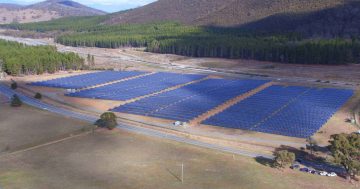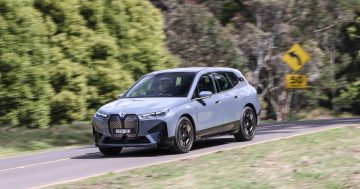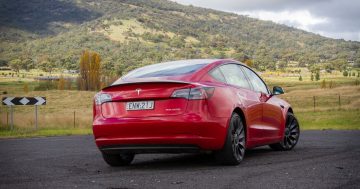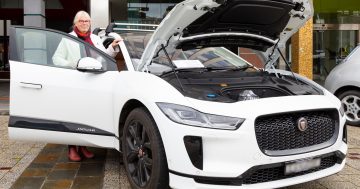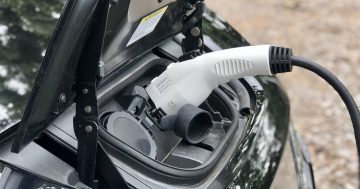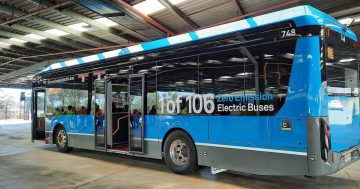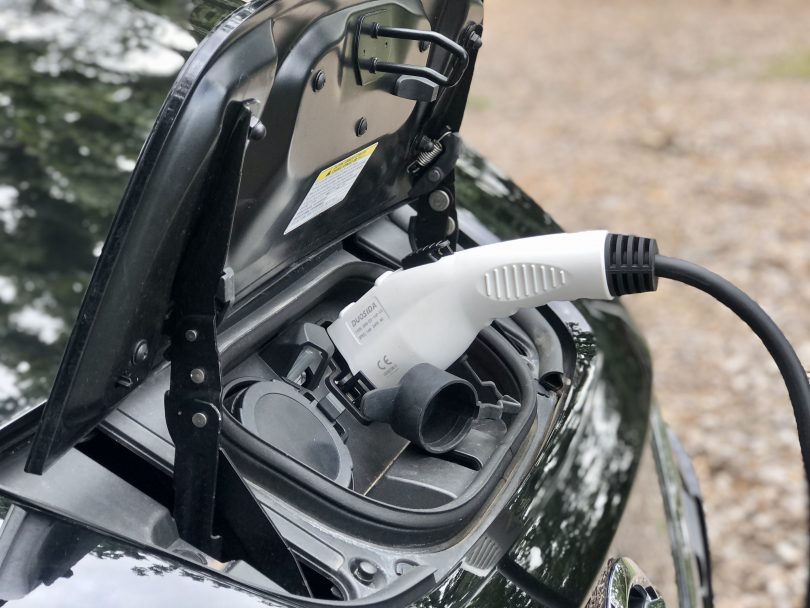
A different kind of filling up. Photo: James Coleman.
A lack of electric vehicle charging stations in the ACT may endanger the public sector’s adoption of a zero-emissions vehicle fleet, with public servants worried they will be unable to find a place to charge the vehicles, the ACT Auditor-General has found.
Auditor-General Michael Harris described the failure to include sufficient charging infrastructure in the new ACT Government buildings in Dickson and Civic as “a missed opportunity”.
Just two electric vehicle chargers were built in each building before they opened and the government is working to address the “immediate and medium-term shortfall” in the availability of parking spaces with chargers, Mr Harris said.
“Progress over related issues, such as what vehicles are entitled to park and charge in these two new buildings and the associated costings and assessments of different installation scenarios, has led to insufficient progress being made to reach a timely decision.”
There are currently plans to install 80 charging stations across Civic and 35 stations across Dickson.
The government allocated around $500,000 to install 50 electric vehicle charging stations in 2018, and the Sustainable Household Scheme was expanded in February this year to include home charging infrastructure.
Mr Harris also found the availability of some car models, the choice between battery and plug-in hybrid electric vehicles, preferred parking locations and patterns of use have also made the transition to a zero-emissions fleet more complex.
The complications with the rollout have led to a larger percentage of lease extensions than usual, as opposed to new leases and a larger percentage of plug-in hybrids being leased instead of battery electric vehicles.
Mr Harris said the emerging vehicle leasing patterns warranted a closer examination and the government’s transition should be reviewed.
The ACT Government committed to only leasing zero-emissions vehicles from 1 July 2020. The government also committed to procuring zero-emission buses from this year and to only purchase zero-emissions buses from 2025.
The government will purchase 90 new electric buses over the next three years as it works to reduce emissions from the transport sector, which is expected to account for over 60 per cent of ACT emissions from 2020.
It plans to transition its entire bus fleet to zero-emission vehicles by 2040.
The 611-strong government passenger fleet included 139 zero-emissions vehicles at the end of March.
While ACT Government agencies have, for the most part, effectively implemented the Government’s zero-emissions vehicle commitments, the three teams working on the policy’s implementation “did not develop a shared understanding and commitment”, the report said.
This resulted in amendments in the Parking and Vehicle Access code being given a lower priority by the Strategic Planning and Territory Planning teams than the Climate Change Policy team.
The use of transit lanes by zero-emission vehicles was also given a lower priority by Roads ACT than the Climate Change Policy team, which resulted in no signage or public announcements for more than 12-months after legislation was amended.
“As a result, the full benefits envisaged by the action have not been realised in a timely way,” the report said.
“Early implementation of this activity is particularly important given this aspect of the legislation terminates in 2023.”
The ACT Government has committed to reaching net-zero emissions by 2045 and at least a 33 per cent reduction in emissions from government operations by 2025 compared to 2020 levels.
